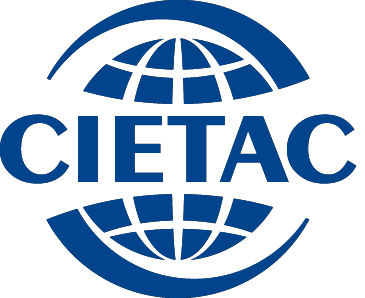- Home
- About Us
- News Center
- Commercial Arbitration
- Arbitrators
- ADR-Service
- Key Events
-
Talent Development
Talent Development
CIETAC CUPFrankfurt Investment Arbitration Moot Court - CIETAC Chinese (Mainland) National RoundChina Youth Arbitration Forum and the “Zhonglun Cup” National Commercial Arbitration Essay ContestCooperation with UniversitiesCIETAC International Arbitration InstituteTraining of Foreign-Related Legal TalentCIETAC Internship Opportunity - Research and References
On December 14, 2023, the Central Asia Trial Center of China International Economic and Trade Arbitration Commission (hereinafter referred to as "CIETAC") held its first hearing of two foreign-related arbitration cases. This hearing, being the first to take place less than 45 days after the establishment of the Center, is of great significance.
Disputes in the two aforementioned cases arise from transnational sales contracts on importation of agricultural products, by Chinese companies and from Kazakhstan and Russia respectively. In addition to individuals and legal entities from Xinjiang, parties involved also include entities from Hong Kong, China. By mutual agreement and with a shared aim of effectively reducing the cost of dispute, the parties jointly applied for a hearing at the newly established Central Asia Trial Center in Urumqi, Xinjiang.
In recent years, the scale of cooperation between China and the five Central Asian countries in the fields of economy, trade and investment has continued to expand. In 2022, the trade volume between China and the five Central Asian countries exceeded 70 billion U.S. dollars, an increase of about 100 times since the establishment of diplomatic relations in 1992. By the end of March this year, China's direct investment in the five Central Asian countries exceeded 15 billion U.S. dollars, with a cumulative turnover of engineering contracts reaching 63.9 billion U.S. dollars. During the span of ten years between Chairman Xi Jinping's proposal to jointly build the "Economic Belt of the Silk Road" in 2013, and the authorization by the State Council and joint release of "Vision and Actions for Promoting the Construction of the Silk Road Economic Belt and the Maritime Silk Road in the 21st Century" by the National Development and Reform Commission and other three ministries, CIETAC has firmly and strategically positioned itself to integrate its advantages and strategic layout with the national development plan of opening up to the Western part of China. CIETAC shared high-end international legal resources with Xinjiang, and served the end with new plans of cooperation and development in international arbitration, ensuring that the main body of the domestic macro-cycle and the domestic and international double-cycle are mutually reinforced. In view of the steady and rapid growth of China-Central Asia economic and trade cooperation in recent years, along with the rise of demand for related legal services, and in order to further facilitate the parties from Central Asia and the neighboring regions in constructing the "Belt and Road", the CIETAC formally inaugurated the Central Asia Trial Center on November 1, 2023 in Urumqi. The Center aims to serve the major development strategy of "building a community with a shared future between China and Central Asia", provide high-quality and efficient dispute resolution services for the parties relying on the abundant legal resources of CIETAC, further play the role of arbitration in escorting the "Belt and Road" economic and trade cooperation and development, and continuously improve the level of China-Central Asia commercial legal cooperation, so as to better integrate the international and domestic markets and two sets of resources into the new development pattern, and help build a closer China-Central Asia legal cooperation community.
The first hearing of was held within 45 days of the establishment of the Central Asia Trial Center, reflecting the urgent demand for dispute resolution among parties in Xinjiang and the neighboring countries and regions. It further demonstrates the necessity of CIETAC’s establishment of a Central Asia Trial Center in Xinjiang. Meanwhile, the fact that the parties actively chose to hold hearings in the Central Asia Trial Center also highlights their recognition and trust in the credibility and reputation of CIETAC in the field of dispute resolution.
In the future, the Center will continue to be guided by the evolving dispute resolution needs of the parties, actively explore new modes of dispute resolution, and establish a new mechanism for commercial legal cooperation. The aim is to promote the development of the Xinjiang Pilot Free Trade Zone, improve the local business environment and level of openness, and simultaneously contribute to the high-quality development of the "Belt and Road" initiative. The center will strive to contribute to the construction of the China-Central Asia community.
{{ article.quickLinkTitle ? article.quickLinkTitle : 'Quick Links' }}
Quick Links












